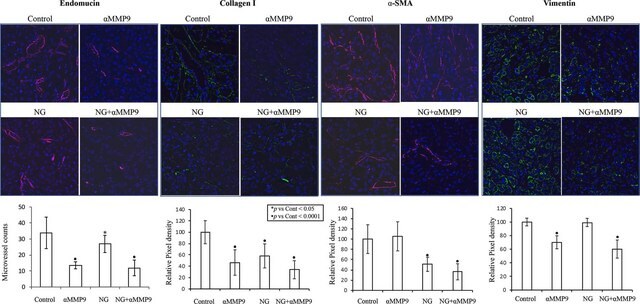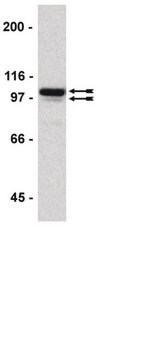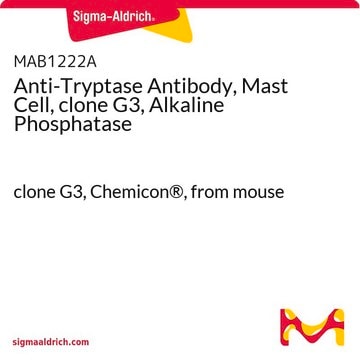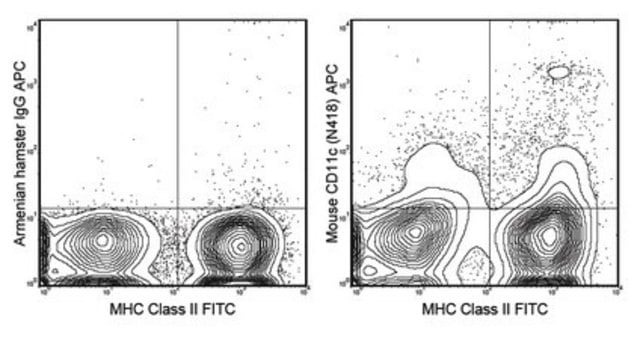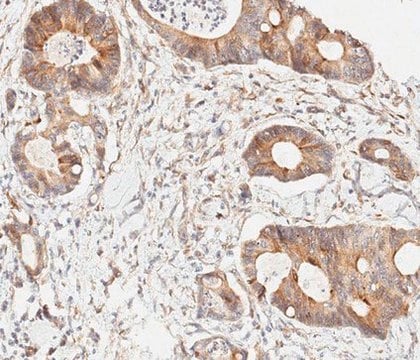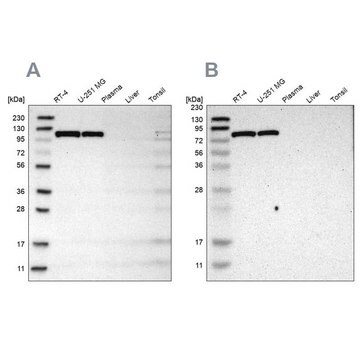MABD150
Anti-LIF Receptor, clone 1C7 (Azide Free) Antibody
clone 1C7, from mouse
Synonym(s):
Leukemia inhibitory factor receptor, LIF receptor, LIF-R, D-factor, CD118, GP190, LIFR
About This Item
Recommended Products
biological source
mouse
Quality Level
antibody form
purified antibody
antibody product type
primary antibodies
clone
1C7, monoclonal
species reactivity
human
technique(s)
flow cytometry: suitable
inhibition assay: suitable
isotype
IgG1κ
NCBI accession no.
UniProt accession no.
shipped in
wet ice
target post-translational modification
unmodified
Gene Information
human ... LIFR(3977)
General description
Immunogen
Application
Inhibition Assay Analysis: A representative lot detected LIF Receptor in IL3 proliferative response in Ba/F3 cells (Pitard, V., et al. (1997) Journal of Immunological Methods. 205:177-190).
Stem Cell Research
Cell Cycle, DNA Replication & Repair
Quality
Flow Cytometry Analysis: 1.0 µg of this antibody detected LIF Receptor in CHO D1IgD2-mycDAF.
Target description
Physical form
Storage and Stability
Handling Recommendations: Upon receipt and prior to removing the cap, centrifuge the vial and gently mix the solution. Aliquot into microcentrifuge tubes and store at -20°C. Avoid repeated freeze/thaw cycles, which may damage IgG and affect product performance.
Other Notes
Disclaimer
Not finding the right product?
Try our Product Selector Tool.
Storage Class Code
12 - Non Combustible Liquids
WGK
WGK 2
Flash Point(F)
Not applicable
Flash Point(C)
Not applicable
Certificates of Analysis (COA)
Search for Certificates of Analysis (COA) by entering the products Lot/Batch Number. Lot and Batch Numbers can be found on a product’s label following the words ‘Lot’ or ‘Batch’.
Already Own This Product?
Find documentation for the products that you have recently purchased in the Document Library.
Our team of scientists has experience in all areas of research including Life Science, Material Science, Chemical Synthesis, Chromatography, Analytical and many others.
Contact Technical Service